2023 AFSPResearch Grants
Much of what is known about suicide comes from studies that AFSP has funded. Our studies open up new areas of inquiry, and our council of scientific advisors helps set the national research agenda.
In addition to addressing the research priorities identified by the National Action Alliance for Suicide Prevention, our 2022 Grants cover one or more of the following six content categories:
Neurobiological
How do brain structure and neurochemical function contribute to suicide?
Psychosocial
What are the risk factors and warning signs for suicide?
Genetic
What genetic pathways are associated with suicide risk, and can we develop biological interventions and treatments?
Treatment
What treatments — like therapies and medications — are effective at reducing suicide?
Community
What universal prevention programs — like hotlines, gatekeeper training, and community-based programs — are the most effective?
Loss Survivors
What is the impact of suicide loss, and what helps the healing process?
Focus Grants
Focus grants are targeted, innovative, high-risk, potentially high-yield projects that seek to inform and even transform suicide prevention efforts.
Short Term Risk Grant

Yovanska Duarte-Velez, Ph.D.
Emma Pendleton Bradley Hospital
$1,500,000
Research Area: Treatment
A new clinical model for the engagement of Latinx youth with suicidal behavior and their families in a culturally centered CBT treatment
This study will test a model of providing treatment to Latinx/Hispanic youth, who experience suicidal thoughts and behavior, and their caregivers. Affirmative and culturally relevant treatment will be provided to all youth and half of the families will be assigned to the additional support of a community health worker (CHW). Youth symptoms and family engagement to treatment will be followed for nine months. The potential benefit of adding the CHW intervention will be assessed.
Reaching 20% Grant
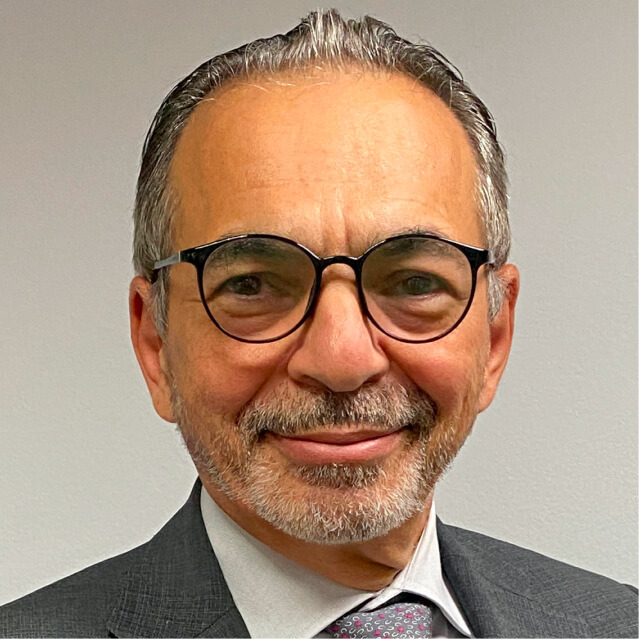
Igor Galynker, M.D. Ph.D.
Icahn School of Medicine at Mount Sinai
$1,500,000
Research Area: Psychosocial
Effectiveness of Diagnostic vs. Symptom-Only Suicide Crisis Syndrome Assessment (SCS-A) for Post-Discharge Suicide Prevention.
In preventing suicide, we rely on patients disclosing their suicidal intent. However, most suicide decedents deny such intent during their final communications. The Suicide Crisis Syndrome (SCS) is a suicidal mental state that does not include suicidal intent, and its diagnosis is predictive of suicidal behavior or suicide death. Our aim is to implement and compare the effectiveness of two different methods of assessing SCS for reducing suicidal behavior in the Mount Sinai Health System.
Reaching 20% Grant

Anna K. Radin, DrPH, M.P.H.
St. Luke's Health System
$1,499,876
Research Area: Treatment
Effectiveness of Two-Way Caring Texts vs One-Way Caring Texts vs Usual Care: A Pragmatic Randomized Controlled Trial
Something as simple as sending caring text messages can be lifesaving. Caring texts, postcards, or letters have been proven to reduce suicidal ideation, behavior, and even deaths. However, there are important questions remaining about how best to deliver this intervention. This study will compare the effectiveness of sending two-way caring texts (to which participants can reply), versus one-way caring text messages (which is easier and less costly to deliver), versus usual care without caring texts.
Blue Sky Grant

Noam Schneck, Ph.D.
Columbia University
$1,498,674
Research Area: Neurobiological
Developing a Multimodal System for Automated Passive Detection of Suicidal Ideation
The risk for suicide attempts in suicidal patients increases following hospital discharge. However, it is difficult to know exactly when a crisis is manifesting. Here, we aim to use mobile EEG to monitor people who have been recently discharged from the hospital. Using a neural decoding technique, we will attempt to detect suicidal crises as they may be occurring. The ability to automatically detect crises may help pave the way for timely lifesaving interventions.
Innovation Grants
Through the funding of Innovation Grants, AFSP supports pioneering work that will increase our understanding of suicide with an array of promising new areas of research.
Linked Standard Research Grant

Nadine M. Melhem, Ph.D.
University of Pittsburgh School of Medicine

M. Katherine Shear, M.D.
Columbia University
$450,000
Research Area: Treatment & Suicide
Developing a Family-Focused Treatment for Prolonged Grief for Parental Suicide Bereaved Families with Children
We plan to develop a treatment for suicide bereaved families experiencing prolonged grief in surviving children and/or parents that will help them deal with their loss, restore the family’s capacity to thrive and optimize their ability to communicate effectively. Availability of such an evidence-based approach for suicide survivors would be a major step forward for both bereaved survivors and for suicide prevention.
Distinguished Investigator Grant
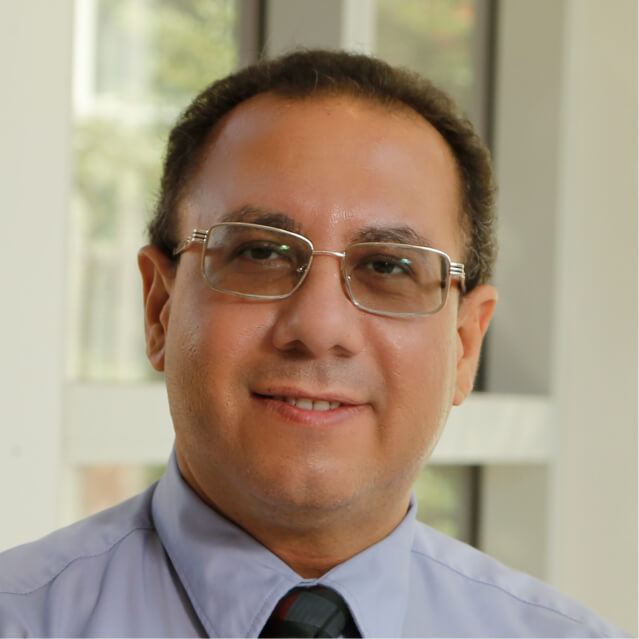
Nagy Youssef, M.D., Ph.D.
The Ohio State University
$124,973
Research Area: Treatment
Efficacy of Low Amplitude Pulse Seizure Therapy (LAP-ST) versus standard Ultra-brief Right Unilateral (RUL) ECT in remission of Suicidal Ideation
Electroconvulsive Therapy (ECT) is a lifesaving treatment for patients with serious suicidal ideation (not responsive to standard therapeutics). However, memory side effects can be a barrier to treatment. Our proof-of-concept studies showed that Low Amplitude Pulse Seizure Therapy (LAP-ST), a form with low current stimulus, did not show these side effects. Thus, we will perform a clinical trial to compare standard ECT to LAP-ST on remission of suicidal thoughts to spare memory side effects.
Distinguished Investigator Grant

Liang Zhou, M.D.
The Affiliated Brain Hospital of Guangzhou Medical University
$150,000
Research Area: Psychosocial & Treatment
Community-based participatory social support intervention in preventing suicide of rural older adults: a clustered randomized trial.
The feeling of loneliness and lack of social connections are associated with suicide in older adults. Inviting rural senior residents to join the design and implementation, this study will develop culturally sensitive social support intervention including group activities and one-to-one home visit. The aims are to provide meaningful human connections, decrease the feeling of loneliness and depressive mood, and eventually prevent suicidal ideation and behavior among rural Chinese older adults.
Standard Research Grant
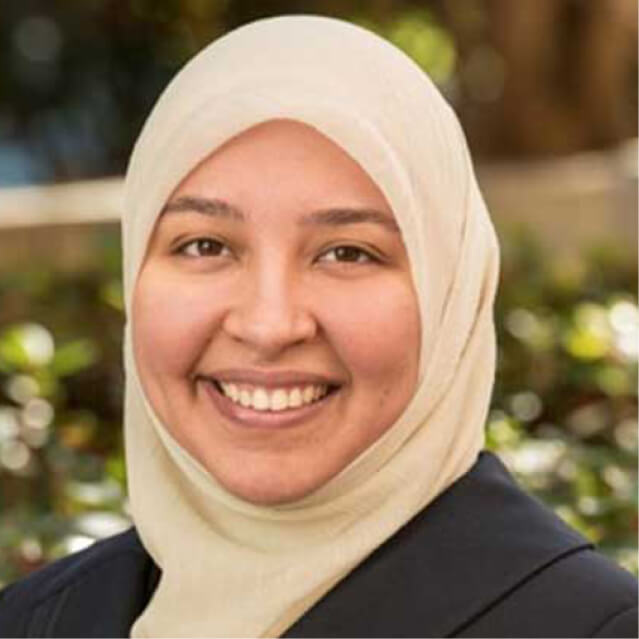
Rania Awaad, M.D.
Stanford University
$124,998
Research Area: Treatment & Community
Evaluating a Culturally Adapted Program for Effective Suicide Prevention, Intervention and Postvention among American Muslims
The Stanford Muslim Mental Health and Islamic Psychology Lab developed the first-ever scientifically and religiously congruent suicide response training program for American Muslim religious and community leaders. This study examines the training’s effectiveness in improving these leaders’ understanding of suicide in American Muslim communities as well as their ability to promote suicide prevention, engage in crisis intervention, and support their communities in the aftermath of a suicide.
Standard Research Grant

Ran Barzilay, M.D., Ph.D.
Children's Hospital of Philadelphia
$125,000
Research Area: Psychosocial
Identification of environmental and lifestyle factors that contribute to Black youth suicide attempt risk in four large samples.
Suicidal behavior among Black youth is rising steeply relative to youth of other races. This study will leverage large youth datasets that include >50,000 diverse youth, of whom >16,000 are Black youth, to identify risk and protective factors for Black youth suicide attempts. Findings will inform Black youth suicide prevention efforts by identifying key factors in risk assessment that can optimize clinical risk classification in Black youth and mitigate racial disparities in suicide risk.
Standard Research Grant

Shooshan Danagoulian, Ph.D.
Wayne State University
$125,000
Research Area: Psychosocial
Seasonal Allergy Blues: Is Mental Health Worse on High Pollen Days?
Seasonal pollen allergies affect millions of Americans each year, reducing sleep and wellbeing. This study will evaluate the relationship between seasonal pollen and mental health and suicidality. Medicaid and Medicare claims and death certificate data in United States will be used to compare high pollen days to other days in the same month, year, and county. Findings would quantify the importance of clean air on mental health, particularly in rural areas, aiming to reduce suicide.
Standard Research Grant

Mark A. Ferro, Ph.D.
University of Waterloo
$124,499
Research Area: Psychosocial
Suicidal Ideation and Attempts among Youth with Physical-Mental Comorbidity: A Pan-Canadian Study
Although having a chronic physical illness (e.g., diabetes) increases risk for suicidal ideation and behavior among youth, little is known about suicide burden amongst individuals with co-occurring physical and mental illness. This project aims to understand factors associated with suicide ideation and behavior in youth with physical-mental comorbidity by studying participants in the Canadian Health Survey of Children and Youth. Findings will inform intervention planning to reduce suicidal ideation and behavior in this vulnerable population.
Standard Research Grant
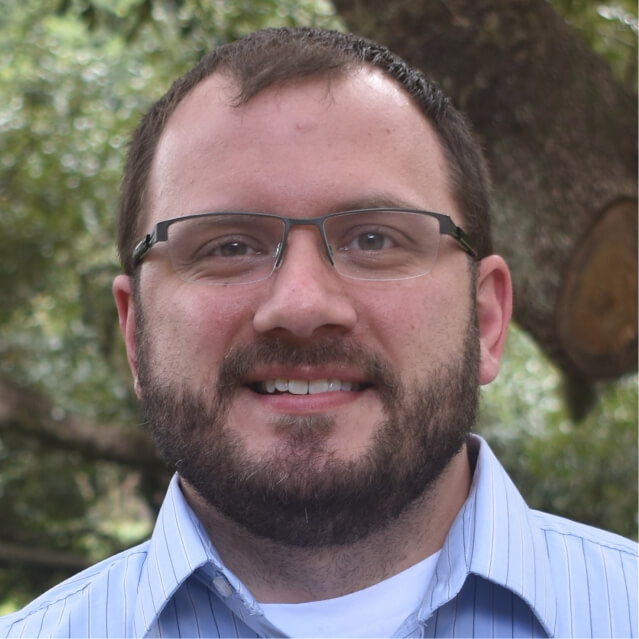
Ryan M. Hill, Ph.D.
Louisiana State University
$125,000
Research Area: Psychosocial
Cultural Consensus Modeling to Identify Culturally Relevant Risk and Protective Factors for Suicide among Sexual Minority Youth
Sexual minority youth report greater rates of suicidal ideation and attempts than their heterosexual peers, but theoretical models of suicide and preventive interventions have been developed with limited representation of sexual minority youth. This project utilizes Cultural Consensus Modelling, a four-phase approach that starts with sexual minority youth themselves, to help us identify culturally informed models of suicide. What we learn may help us develop and improve programs to prevent suicide among sexual minority young people.
Standard Research Grant

Jennifer L. Hughes, Ph.D., M.P.H.
Nationwide Children's Hospital, The Ohio State University
$125,000
Research Area: Treatment
SAFETY-Parent: Online Learning Module to Support Parents of Suicidal Youth
When a child or teen is having suicidal thoughts or behaviors, parents are key in recognizing the signs, monitoring, and supporting their child, and seeking care for their child. This study will develop and test an online self-paced intervention module, called SAFETY-Parent, for parents to learn strategies to best support their child, when the child is receiving treatment for suicidal ideation, suicidal behavior, or recent suicide attempts.
Standard Research Grant

Kylie King, BSc, PGradD Psych, DPsych, Ph.D.
Monash University
$125,000
Research Area: Community
Formative evaluation of suicide prevention gatekeeper training for aged care workers
"Older people face the highest suicide rates across age groups. As the ageing population grows, aged care services increasingly care for people who are most vulnerable to suicide. Through a collaboration between Monash University, The National Ageing Research Institute, The University of New England, and Living Works this project adapts and evaluates suicide prevention gatekeeper training for aged care workers. Impactful training could reduce suicide risk among older people and improve the wellbeing of workers."
Standard Research Grant
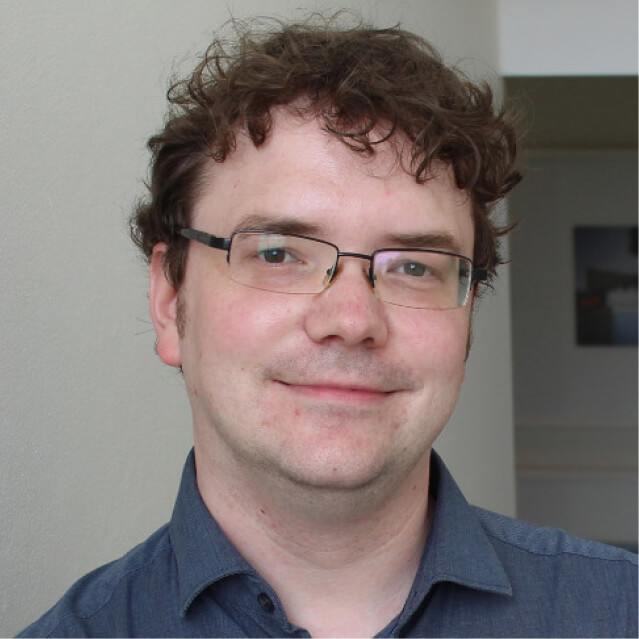
Mark Larsen, MEng, DPhil
University of New South Wales
$125,000
Research Area: Psychosocial
Digital approaches for understanding behaviors prior to suicide.
A significant proportion of suicides occur in public spaces. While some sites have implemented alarm systems, intervention is often too late. This project will use archived CCTV footage to understand behaviors preceding suicide in a range of public settings. We will then see if it’s possible to automatically identify behavioral warning signs, potentially allowing for earlier detection and intervention to prevent these suicides. Best practice guidelines for safe and effective intervention will be developed.
Standard Research Grant
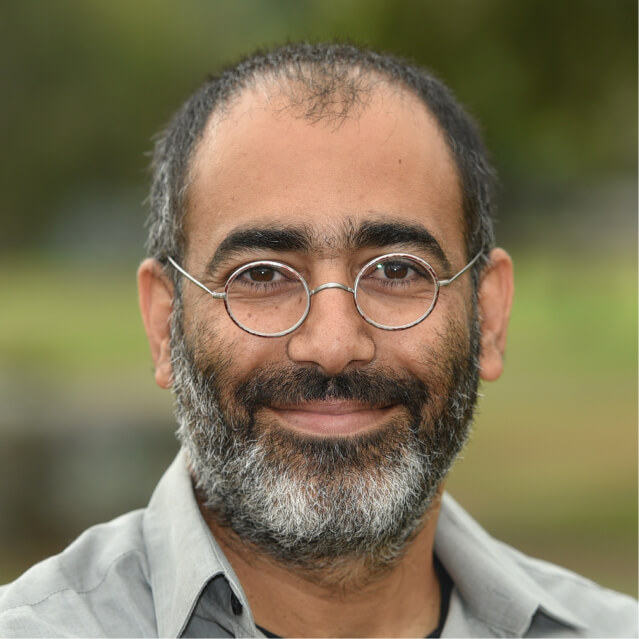
Yossi Levi-Belz, Ph.D, M.A, B.A
Ruppin Academic Center (Israel)
$124,526
Research Area: Treatment & Suicide
The Effectiveness of Mindfulness-Based Cognitive Therapy to Reduce Depression and Prolonged Grief Among Suicide-Loss Survivors: A Longitudinal Randomized Controlled Trial
This project is focused on examination of the effectiveness of new mindfulness intervention that may be helpful for individuals who lost family members to suicide. Our aim is to understand the longitudinal effects of psychological factors which can be crucial for improving the emotional conditions of suicide loss-survivors and even enhance post traumatic growth. Together, we hope that the study’s novel approach will comprise a significant step toward helping suicide loss-survivors in their journey to cope and heal from their suicide loss.
Early Career Researcher

Alison Athey, Ph.D.
RAND Corporation
$109,990
Research Area: Community & Suicide
Mentor: Julie Cerel, Ph.D.
University of Kentucky
A pilot study of Psychological First Aid for suicide loss survivors in Medical Examiner/Coroners Offices
Fourteen million adults are affected by suicide loss annually. Many suicide loss survivors suffer deeply and experience their own suicidal crises. Research is needed to identify what interventions help suicide loss survivors to stabilize after the loss and sites where these interventions can be delivered. We will explore 1) the effectiveness of Psychological First Aid for suicide loss survivors and 2) the role of Medical Examiner/Coroners’ Offices in connecting survivors with suicide postvention resources.
Early Career Researcher

Amanda Burnside, Ph.D.
University of Toronto (Canada)
$110,000
Research Area: Psychosocial
Mentor: Rinad Beidas, Ph.D.
Northwestern University Feinberg School of Medicine
Identifying Barriers to Equitable Implementation of Emergency Department Pediatric Universal Suicide Screenings
Pediatric universal screening in healthcare settings (i.e., asking all youth about suicidal thoughts regardless of presenting concern) is an important intervention in the early detection of suicide risk. However, successful implementation of universal screening remains challenging, and most hospitals screen <50% of eligible youth. Informed by a Community Advisory Board, this study will identify barriers and facilitators to the equitable implementation of suicide screening in both a children’s and general community hospital.
Early Career Researcher

Sujan Chandra Das, Ph.D.
University of California Irvine
$110,000
Research Area: Genetic & Neurobiological
Mentor: Marquis Vawter Ph.D.
University of California Irvine
Cortical cell-type-specific, layer-specific, and spatial transcriptomic signatures in suicide completers
Millions of people are affected by suicide worldwide. Unfortunately, there are no established biological markers to predict suicidality. The human brain consists of various cell types with diverse functions. Thus, alteration within a particular cell type might contribute differently to suicidality. This present study aims to resolve the contribution of specific brain cell types to suicidality. The brain’s cell-type-specific biological signatures might serve as potential therapeutic targets to prevent suicide.
Early Career Researcher

Peter Franz, Ph.D.
Montefiore Medical Center
$109,926
Research Area: Treatment
Mentor: Randy Auerbach, Ph.D.
Columbia University
A Pilot Evaluation of a Digital Peer Support Intervention for Suicidal Adolescents
Suicide risk has increased among youth in underserved communities, where access to mental healthcare is limited. To address this need, we plan to develop a brief, low-cost, culturally responsive digital intervention for ethnically diverse youth at risk for suicide in The Bronx, NY. In collaboration with community stakeholders, we will develop suicide recovery narratives. We will then use a smartphone app to evaluate whether a curriculum of these narratives provides anti-suicidal benefits to at-risk adolescents.
Early Career Researcher

Adrienne Grzenda, M.D., Ph.D., M.S.
University of California Los Angeles
$108,000
Research Area: Psychosocial
Mentor: Diana Clarke, M.D.
American Psychiatric Association
Heat Extremes and Suicide
Excess heat is an emerging but poorly understood risk factor for suicide. The impact of heat exposure on suicide and emergency services utilization for suicidal thoughts and behaviors will be investigated using models built from linked administrative claims, death certificate data, and climate measurements. Heat is likely a catalyst on multiple pathways that increase risk for self-harm. Machine learning/artificial intelligence will be used to identify common contributing factors, such as substance misuse, among heat-associated suicides.
Early Career Researcher
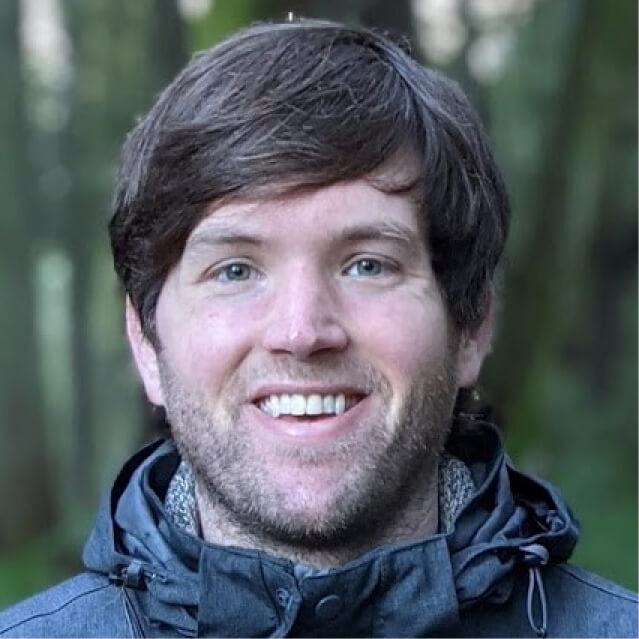
Kevin Kuehn, Ph.D.
University of California, San Diego
$110,000
Research Area: Treatment
Mentor: Raeanne Moore, Ph.D.
University of California, San Diego
Modulation of Brain Plasticity in the Development of Suicidal Behaviors
Individuals who experience suicidal thoughts and behaviors (STBs) are unique. What causes STBs for one person likely differs from another. At the same time, STBs are dynamic; Even for the same person, the drivers of STBs at one point in time may change in the future. The purpose of the current project is to take advantage of these person-specific differences to refine and test personalized interventions based on principles of evidence-based treatments.
Early Career Researcher

Amanda Tamman, Ph.D.
Baylor College of Medicine
$107,227
Research Area: Psychosocial
Mentor: Lynnette Averill, Ph.D.
Baylor College of Medicine
Psilocybin Assisted Therapy for Suicidal Thoughts and Behaviors in PTSD: A Pilot Study
Psilocybin-assisted therapy (PAT) shows potential for addressing suicide deaths among US veterans, but requires testing in patients with low-severity suicidal thoughts to mitigate risk. We will test the effect of PAT on mild suicidal thoughts and behaviors using an existing clinical trial for veterans with PTSD, a group with high co-occurring suicide. Participants will undergo pre- and post-PAT assessments, including brain scans and social tasks associated with suicidal thoughts and PTSD to identify potential mechanisms for therapeutic effects.
Early Career Researcher

Frank Wendt, Ph.D.
University of Toronto Mississauga
$109,474
Research Area: Genetic
Mentor: Renato Polimanti, Ph.D.
Yale School of Medicine
The effects of rare and common genetic risk on the heterogeneity of suicide outcomes
The genetic code influences suicidal thought and behavior, but the parts of this code that are important for these actions and feelings differ depending on one’s genetic background. This project uses new statistical methods to identify genes, some of which are known to affect the brain, that influence suicidal thought and behavior in diverse communities. Our findings have the potential to inform effective intervention strategies in high-risk, under-represented communities experiencing suicidal thoughts and/or behaviors.
Young Investigator Grant

Yunyu Xiao, Ph.D.
Cornell University, Weill Cornell Medicine
$109,448
Research Area: Psychosocial
Mentor: John Mann, M.D.
Columbia University
Real-Time Study of Psychotherapy, Suicide Risk, and Resilience in Transgender and Non-Binary Adults Understanding Structural Social Determinants of Suicidal Trajectories
This research explores the influence of environmental factors, such as access to green spaces, healthcare, and quality education, on the suicide risk among US adolescents and young adults, with a specific focus on Black and Asian youth. Leveraging innovative statistical techniques and nationwide longitudinal data, the study aims to uncover why these social and structural determinants may disproportionately increase suicide risk. The findings will guide more targeted suicide prevention strategies, aiding in building healthier, more equitable communities.
Postdoctoral Fellowship

Chloe Lau, Ph.D.
Centre for Addiction and Mental Health (CAMH) Toronto
$140,000
Research Area: Psychosocial
Mentor: Lena Quilty, Ph.D.
Centre for Addiction and Mental Health
Using Supervised Machine Learning to Predict the Role of Cognitive Control in the Suicide Ideation-to-Action Model
The proposed study aims to predict suicide attempts with supervised machine learning algorithms using clinical and cognitive variables. This project leverages the CAMH Toronto Adolescent and Youth Cohort Study recruiting youth ages of 11 to 24 over five years. A large-scale longitudinal study of service-seeking youth would be ideally positioned to identify a variety of risk factors that work together to predict suicide attempt in youth and recognize vulnerable youth before they die by suicide.
Postdoctoral Fellowship

Stephanie Sequeira, Ph.D.
Alpert Medical School of Brown University
$140,000
Research Area: Psychosocial
Mentor: Anthony Spirito, Ph.D.
Alpert Medical School of Brown University
A Multimodal Integration of Neurobiological and Ecological Measures of Emotion Regulation in Suicidal Individuals
Difficulty regulating negative emotions contributes to vulnerability toward suicidal behavior. This multimethod study combines neural, physiological, and real-time monitoring of emotion, stress, and coping to characterize impairments in emotion regulation (ER) associated with suicide risk. A machine learning based-approach will be applied to derive a neural signature for ER-related brain activity and used to predict physiological reactivity to stress and spontaneous use of coping strategies in real-world settings. Findings may ultimately inform clinical interventions for suicide risk.